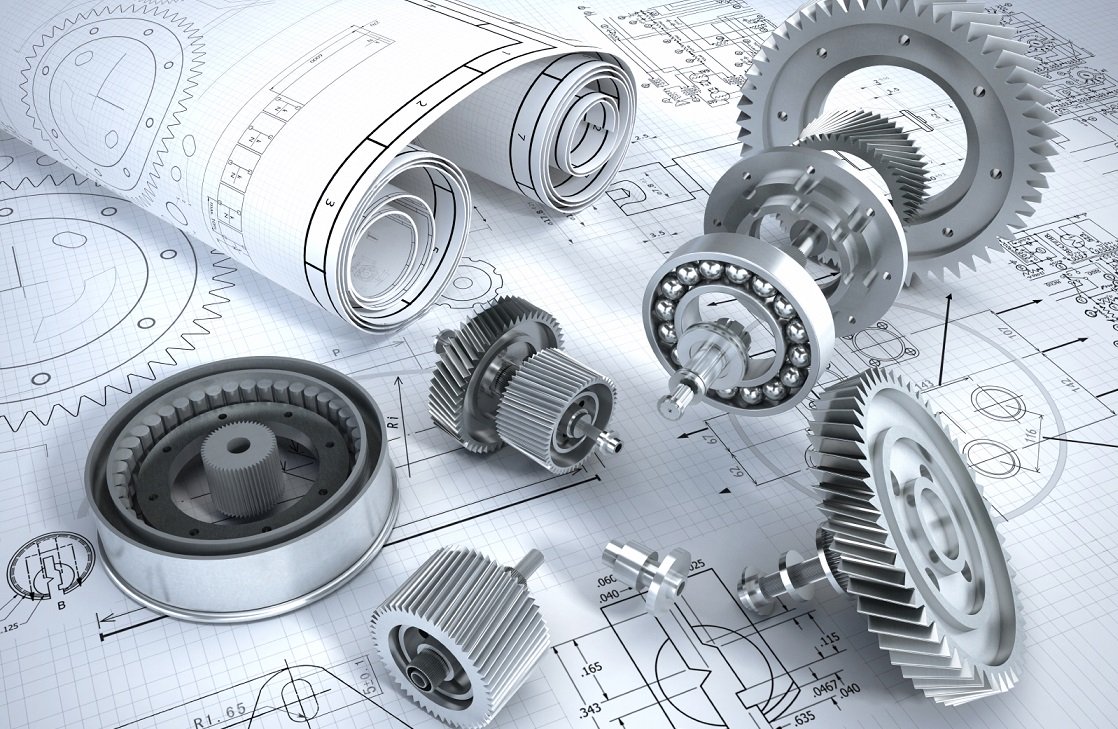What is mechanics?
Mechanical engineering is a highly applicable science and technology, playing an important role in production and life. Mechanical engineering creates machinery, equipment and tools to replace manual labor, serving production and business activities in enterprises, and also creates civil products serving human life.
Mechanical engineering is widely seen in the design and repair of fields such as: automobiles, aircraft, other means of transport, heating and cooling systems, household appliances, weapons, etc.

What is mechanical engineering?
According to Wikipedia: "Mechanical engineering is the discipline that applies engineering, physics, engineering mathematics, and materials science principles to design, analyze, manufacture, and maintain mechanical systems. It is one of the oldest and broadest of the engineering disciplines".
Mechanical engineering is the application of engineering principles, physics, mathematics, and materials science to the design, analysis, manufacturing, and maintenance of mechanical systems and machines. Mechanical engineering is one of the oldest and largest branches of engineering.
Typically, mechanical engineering is considered to encompass smaller fields such as:
-
Mechanics: Statics; Kinetics; Dynamics;
-
Materials Science;
-
Mechanical Design and Manufacturing;
-
Thermo-Energy-Fluid Mechanics;
-
Control and Robotics.
-
Thus, mechanical engineering requires an understanding of core knowledge such as: Mechanics (statics, kinematics, dynamics); Thermodynamics, energy; Materials science; Control engineering. In addition, mechanical engineering also uses modern tools with the help of computers (Computer-Aided Design - CAD; Computer-Aided manufacturing - CAM) in the design and production of mechanical parts, machinery, thermal and refrigeration systems, transportation systems such as aircraft, ships, robots, medical equipment, weapons, etc.

What is mechanical engineering?
The main subjects of mechanical engineering include:
-
Mathematics (topical mathematics, computational mathematics, differential equations, linear algebra)
-
Basic physical science (including physics and chemistry)
-
Theoretical mechanics (statics, kinematics and dynamics)
-
Material strength and structural mechanics
-
Materials and composite engineering
-
Thermodynamics, heat transfer, energy conversion, and HVAC (ventilation and air conditioning)
-
Fuels, combustion and internal combustion engines
-
Fluid mechanics (including: hydrostatics and hydrodynamics)
-
Machine and mechanism design (including: kinematics and dynamics)
-
Tools and measurements
-
Manufacturing Engineering: Manufacturing Technology and Processes
-
Vibration, Theory and Control Techniques
-
Hydraulics and Pneumatics
-
Mechatronics and Robotics
-
Engineering design and product design
-
Technical Drawing, CAD and CAM

What does a mechanical engineer do?
Mechanical engineering professionals tackle tasks in a wide variety of areas such as:
-
Conceptual design
-
Analysis
-
Presentations and report writing
-
Multidisciplinary teamwork
-
Concurrent engineering - combining multiple disciplines at the same time, from design, manufacturing, sales to product development (Concurrent engineering)
-
Benchmarking the competition
-
Project management
-
Prototyping
-
Testing, Measurements
-
Data Interpretation
-
Research & Development
-
Analysis: Finite Element Method or Numerical Method (Analysis - FEA and CFD)
-
Working with suppliers
-
Sales
-
Consulting
-
Customer service
How much is the current salary of mechanical engineers?
Mechanical engineers can design and manufacture traditional or high-tech products. They can do jobs such as: design, drawing, installation or processing of machinery and equipment in factories, construction works, mechanical companies; consultants, designers, operators, and repairers of mechanical machinery and equipment; or technical managers and operators in mechanical production, business, and service units.
Engineers in this field can also work in fields such as: manufacturing engineering, automotive mechanics, ship repair and building, textiles, plastic footwear, food, energy and aviation industry...
Because of the huge demand for human resources, mechanical engineers are currently very scarce in many factories and enterprises. Therefore, the salary of mechanical engineers is currently quite stable.
According to Tuyencongnhan.vn's research, depending on experience and working capacity - job title and tasks - business size - working area... the salary for mechanical engineers will be different. Specifically:
-
For new mechanical engineers and those without experience: salary ranges from 8-10 million/month.
-
For highly qualified mechanical engineers with about 3-5 years of experience: salary ranges from 8-15 million VND/month.
-
For highly qualified mechanical engineers, with over 5 years of experience, fluent in foreign languages, with a practice certificate...: salary of tens of millions of VND/month.
In addition, mechanical engineers working for foreign companies and corporations will be paid higher salaries than those working for companies in Vietnam - foreign mechanical engineers are paid higher salaries than domestic mechanical engineers... Besides, you can also research and register for export orders as engineers, working in potential markets such as Japan.